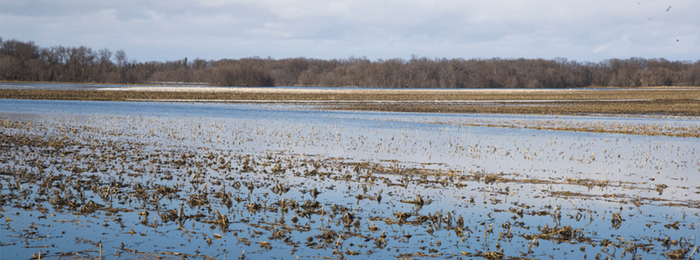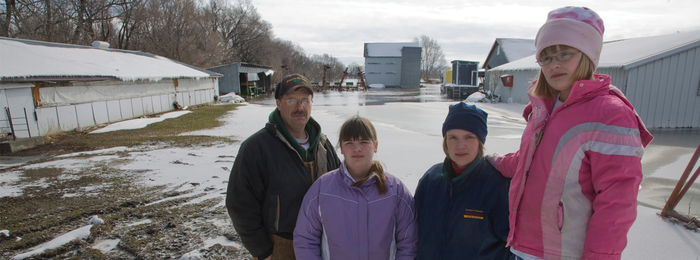As 2019 unfolded, an adage familiar in Minnesota history resurfaced: When farming country feels pain, it reverberates through the rest of the state.
Prolonged lows in commodity prices continued this year, while the U.S. trade block with China added a new concern, especially for pork and soybean growers. Then came the weather: the spring rains continued into summer, leaving many fields with delayed or prevented planting.
“Rural Minnesota is dealing with a number of difficult issues, including the weak ag economy, day care shortages, opioid and other substance abuse and so much more,” Durgan says.
In April, Dean Bev Durgan formed the Extension Rural Stress Task Force to work with Greater Minnesota as a host of challenges extended beyond the farm.
“Rural Minnesota is dealing with a number of difficult issues, including the weak ag economy, day care shortages, opioid and other substance abuse and so much more,” Durgan says.
Task force members bring expertise from across Extension. Their early efforts include a focus on mental health, as well as building upon individual and community strengths. During the summer, for instance, Extension educator and task force member Denise Stromme presented strategies for getting through conflict to audiences including rural bankers, veterinarians and farmers at six Minnesota Department of Agriculture events across the state.
Through specialized training called mental health first aid, Extension staff and others are learning skills to help before a situation grows into a crisis.
The task force is being led by Emily Wilmes, a local agriculture educator in Stearns, Benton and Morrison counties, while other Extension staff fill in on some of her local duties.
A Cold Spring resident, Wilmes grew up on a dairy farm in Le Sueur County and earned her bachelor’s and master’s degrees at the University of Minnesota. She has played an active role in Extension dairy and beef education and has organized Farming in Tough Times seminars for Minnesota farmers.
“I’ve got rural life in my blood and I know how difficult these times are for farmers, as well as the stresses facing rural communities,” says Wilmes. “I’m passionate, personally and professionally, about working on solutions.”
“I’ve got rural life in my blood and I know how difficult these times are for farmers, as well as the stresses facing rural communities,” says Wilmes.
Visit coping with rural stress for more information.
Addressing opioid addiction
Extension family and community development educators are addressing the opioid crisis in rural communities by capitalizing on all of the physical, social, cultural and human assets a person has working to their advantage when trying to get clean from addiction. It’s a framework called “recovery capital” and local changemakers are being trained to use it to support people with compassion. Extension and the University of Minnesota Duluth College of Pharmacy are working closely with partners on the front line of the opioid crisis in Aitkin, Itasca, St. Louis and Pine counties, and Bois Forte and Mille Lacs Band of Ojibwa.





